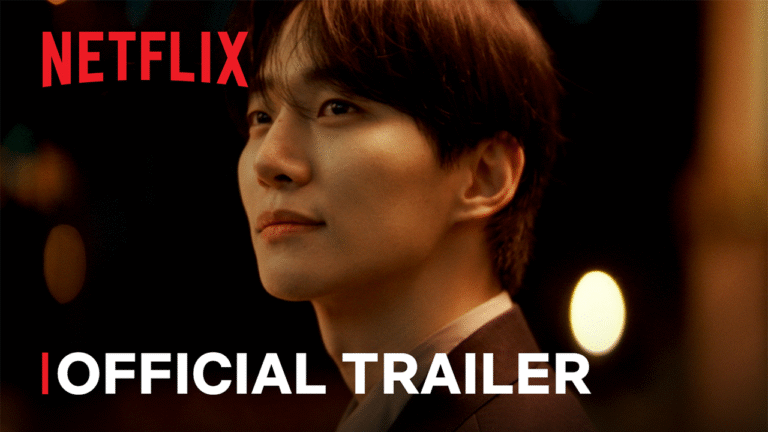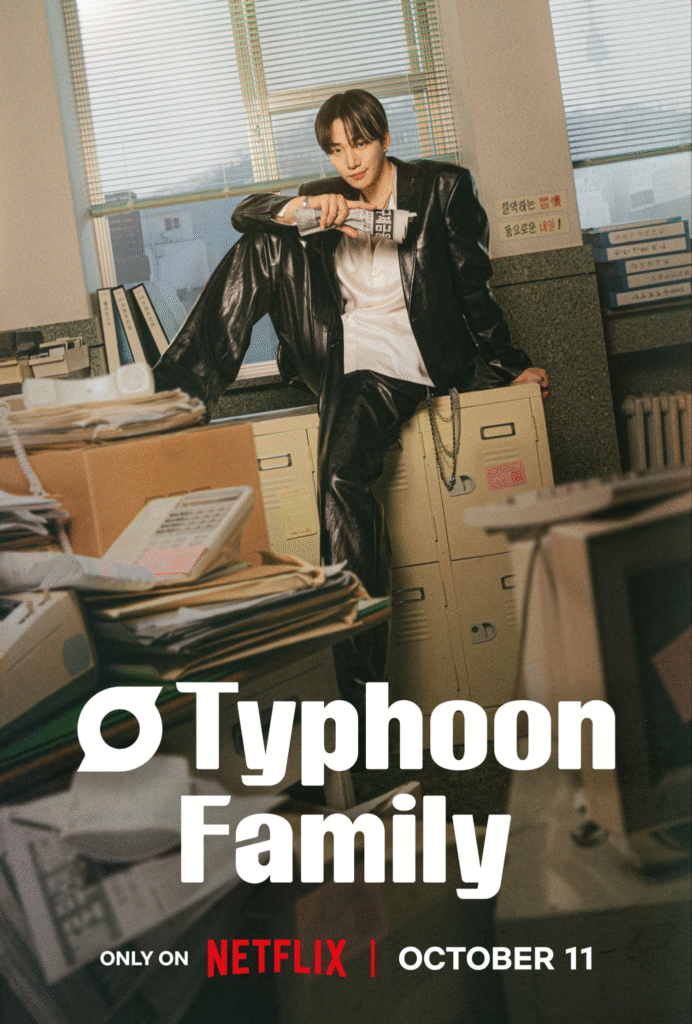‘Typhoon Family’ is coming this Oct 11, Only on Netflix

A Coming-of-Age Tale in the Eye of the Storm: Tae-poong’s Rise During the 1997 IMF Crisis
October 11 marks a moment for streaming shelves everywhere: Typhoon Family is coming to Netflix, a drama that doesn’t just survive a financial crisis—it uses it as the crucible for a young CEO’s maturation. Set against the backdrop of the 1997 IMF crisis, this coming-of-age tale follows Tae-poong, a small business owner whose carefree days are upended when he inherits his father’s struggling enterprise. As the country braces for economic tremors, Tae-poong must chart a path from wild youth to rookie boss, learning the harsh lessons of adulthood in real time.
A premise that hits close to the heart
Logline: Amid the 1997 financial crisis, a carefree son inherits his father’s struggling business — growing from wild youth to rookie boss as he learns adulthood.
In many storytelling traditions, crisis is the catalyst for character growth. Typhoon Family leans into that truth, placing Tae-poong at the center of a dual crisis: external economic collapse and internal questions about purpose, responsibility, and legacy. The IMF crisis of 1997 wasn’t just a backdrop; it was a living antagonist—tightening credit, shuttered storefronts, and a sense that the ground beneath South Korea’s modern bubble was shifting at an alarming pace. Into this landscape steps Tae-poong, a protagonist whose early swagger begins to look increasingly like bravado in the face of uncertainty.
Tae-poong: from carefree to conscientious
The show traces Tae-poong’s arc with care and nuance. He starts as a young entrepreneur who thrives on charm, risk-taking, and a certain street-smart optimism. His father’s legacy—embedded in a family business that has weathered countless cycles of boom and bust—becomes both a burden and a beacon. As the IMF crisis bites, Tae-poong’s world is stripped of easy solutions. He learns to balance survival with ethics, reinvestment with reinvigorated purpose, and the demanding reality that leadership means making hard calls that ripple through employees’ lives.
What makes Tae-poong’s journey resonate is the way the series frames adulthood as a spectrum rather than a single moment. The initial swagger evolves into strategic thinking: cash flow forecasting in a market where even suppliers are tightening terms, personnel decisions in a time of collective anxiety, and a recalibration of risk tolerance. The audience witnesses a maturation that is not just about business acumen but about emotional intelligence—how to communicate bad news, how to earn trust, and how to lead when options are few and consequences significant.
The business as a living character
Typhoon Family treats the family business as more than a plot device; it’s a living character with its own personality, faults, and evolving needs. The business’s struggles mirror Tae-poong’s internal conflict: a once-flourishing venture pushed to the brink, needing reinvention, resilience, and a new vision for what “success” means in a terrain where yesterday’s metrics no longer apply. The show’s strongest sequences reveal the tension between preserving legacy and embracing innovation—between honoring the hard-won foundations laid by his father and exploiting new opportunities that the crisis exposes.
This dynamic is enhanced by the show’s attention to mentorship and intergenerational dialogue. Tae-poong’s relationship with experienced employees, old-school suppliers, and a few hopeful allies inside the company creates a web of perspectives that enriches the narrative. The audience benefits from the realism of business decision-making under pressure, from negotiating payment terms in a faltering economy to pivoting product lines when consumer behavior changes on a dime.

Cast and mood: a grounded, human drama
Starring Lee Jun-ho, Typhoon Family elevates a grounded, human approach to what could have become a melodrama about macroeconomic catastrophe. The ensemble is anchored by performances that feel lived-in and intimate. The infusion of humor—necessary in a story set against gloom—helps to balance the gravity of the crisis, offering breathers that feel earned rather than forced. Lee Jun-ho’s Tae-poong embodies a duality: the exuberance of youth and the aching necessity of leadership, carrying the emotional load without surrendering the film’s sense of hopeful possibility.
The Korean series deftly uses color, sound design, and pacing to evoke late-1990s Seoul and its broader economic climate. The atmosphere is thick with the ordinary pressures of family business life—late nights, crowded offices, the ever-present queue of vendors and customers who push for terms—contrasted with quiet sequences of personal revelation. In this way, Typhoon Family rises above a simple survival tale to become a meditation on what it means to grow up when the ground is shifting beneath you.
Why this story matters now
Even though the IMF crisis is a historical moment, its themes remain startlingly contemporary: the fragility of small enterprises, the burden of leadership, the tension between legacy and innovation, and the human toll of economic upheaval. Tae-poong’s evolution from carefree youth to conscientious rookie boss speaks to anyone who has faced a crucible—a career milestone, a family responsibility, or a personal vow to rise above circumstances.
In a media landscape that often prioritizes spectacle over substance, Typhoon Family offers a more intimate form of drama. It invites viewers to witness a transformation that is earned through mistakes, hard choices, and a determination to protect what matters most—whether that is a livelihood, a family, or a vision for a better future.
The Netflix release: October 11
With the October 11 drop on Netflix, Typhoon Family enters a slate of streaming dramas that prize character-driven storytelling and historical texture. The series promises not only to entertain but to illuminate the resilience of individuals who find their footing when the world demands otherwise. The coming-of-age tale of Tae-poong is, at its core, a story about adulthood—not as a single milestone but as a continuous, evolving practice of leadership, empathy, and grit.











